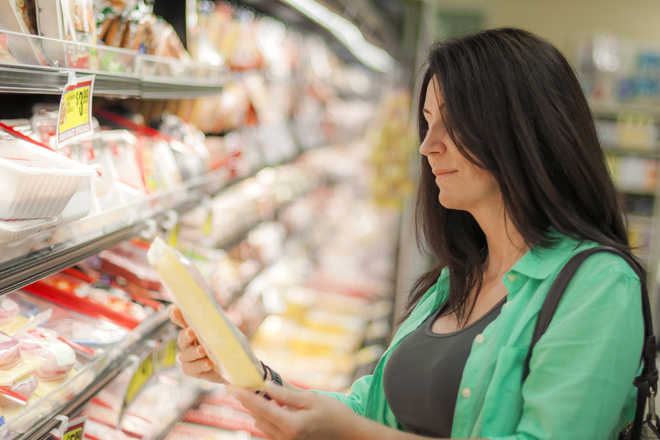Facts and defects of frozen foods
Mridula Wattas
People have been freezing foods as a means of preservation as early as 1000 B.C., when the Chinese used to store food in ice cellars.
It was in the mid 1920s that Clarence Birdseye, an engineer from the USA, designed a quick freezing unit which would instantly freeze the food without damaging its texture. He is considered the father of frozen food industry which has had tremendous global growth since. In today's times, in the vast Indian middle class, most people work - from working couples, to working parents, to other members, everyone in the family has a job. Between taking care of household chores or/and taking care of the children and a hectic working schedule there is hardly any time or energy or will left for cooking. This is the time when frozen foods become a life-saver. While those short on time may chose to overlook the pitfalls, if any, of using these foods, people mindful of healthy living may have their doubts. Here is a look at various frozen foods and their pros and cons.
Packed with goodness
- Fruits and vegetables — these two food groups retain their nutritive value in both frozen and fresh forms. In fact, sometimes frozen fruits and vegetables may contain more nutrients than the fresh ones. The reason being — these are generally picked at peak ripeness. These are then cleaned, blanched, frozen and packaged within a few hours of being harvested, retaining maximum of their nutrients.
- Blanching involves placing the produce in boiling water for a short time. This process kills any harmful bacteria while retaining flavour, colour and texture of the produce. It may, however, lead to some loss of water-soluble nutrients, such as B-vitamins and vitamin C.
- Fresh fruits and vegetables are often picked before these are fully ripe. Transportation and storage can take anywhere from three days to 12 months. This may also add to loss of vitamins and antioxidants. So either way some nutrients are lost in both transportation and storage.
- Frozen pastes like garlic, ginger, green chillies etc are okay to use.
Meals to avoid
n Ready-to-eat foods like frozen paranthas, cutlets, spring rolls, chicken nuggets etc and ready-to-eat meals like biryani, rajma-chawal etc. fall in this category.
n The freezing process in ready-made meals usually damages the taste of food. To compensate, these meals are processed
with extra salt and fat to add flavour. Artificial ingredients like preservatives, emulsifiers, stabilisers, artificial colours, artificial
Flavours and texturants are also added to these meals.
- These foods are typically high in refined carbohydrates and trans fats and low in fibre and vitamins.
- The quality of individual ingredients used in these meals may not be up to the mark.
- As these foods are easy to cook and can be tasty, one can easily become addicted to them. These meals appeal to kids as well. Regular consumption of ready-to-eat frozen foods may lead to obesity, type-2 diabetes, hypertension and other lifestyle diseases.
- It is necessary to maintain the cold chain strictly at a particular low temperature from the place of manufacturing to the time of selling. Otherwise, the quality and nutrition is compromised. In India where round-the-clock power is never available, especially in summers, these foods should be best avoided.
The healthy choice
If we have to opt for frozen foods at some point of time, we should try and choose healthy options. Some tips:
- When purchasing frozen items, avoid those with any kind of sauces, especially cheese. These meals are high in calories and saturated fat.
- Avoid buying frozen fruits in concentrate or syrup form. These will be high in simple sugars.
- In general, look for meals that include vegetables and whole grains as well as lean meat, fish or poultry.
- Make sure to read the labels and list of ingredients of these foods carefully.
- Avoid items having vegetable oils, trans fats, fructose syrup in list of their ingredients. These are unhealthy.
- Make sure the required certifications for frozen foods are in place. In India, the
- FSSAI certification is mandatory for all processed and packed foods.
- The important point to remember is that most frozen foods are usually not healthy. Restrict their use to only when it is absolutely necessary.
- Have a large serving of a salad or a side of fruits or vegetables when you are serving or having frozen meals. This will add some vitamins and antioxidants to your meal.
Bottom line
- Frozen fruits and vegetables are available throughout the year. This has made the concept of seasonal fruits and vegetables irrelevant. But do pause and think. Nature wanted all vegetables and fruits to grow and be available at a particular time of the year for a reason. This is because these fruits and vegetables provide us with the minerals and vitamins which we require most during that particular season for keeping good health.
- Frozen ready-to eat-meals will never be as healthy as home-cooked meals.
- Convenient or not, try not to depend too much on these and use them only if there is no other option available.
—The writer is former head, Department of Dietetics, PGIMER,Chandigarh
Unlock Exclusive Insights with The Tribune Premium
Take your experience further with Premium access.
Thought-provoking Opinions, Expert Analysis, In-depth Insights and other Member Only Benefits
Already a Member? Sign In Now










